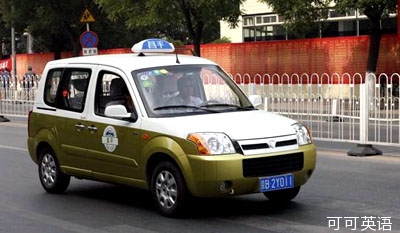【背景】
據(jù)相關(guān)媒體報道,北京的電動出租車司機(jī)飽受車輛充電問題困擾,充電時間過長,占用了拉活兒的時間。
【新聞】
我們來看一段相關(guān)的英文報道
Electric taxi drivers in Beijing suffer from battery problems, with overly long charging sessions cutting into time that could be spent driving passengers.
Waiting in queues at charging stations is now the norm for many drivers, and charging a vehicle can take up to six hours.
According to reports by Beijing Today, most vehicles need to charge at least twice daily in order to maintain a “satisfying income level.”
北京的電動出租車司機(jī)正飽受電池問題困擾,充電時間過長,占用了他們拉客兒的時間。
對許多電動出租車司機(jī)來說,現(xiàn)在在充電站前排隊等候已成常態(tài),而充一次電最長需要6個小時。
根據(jù)《今日北京》的數(shù)篇報道,大多數(shù)電動車每天需要充兩次電,才能維持一個“令人滿意的收入水平”。

【講解】
文中的electric taxi就是“電動出租車”的意思,其中electric是形容詞,解釋為“電的;導(dǎo)電的;用電的”,如electric power(電力)、electric wire(電線)、electric iron(電熨斗)等。
第二段中的norm是個名詞,解釋為“常態(tài)”,成語“一反常態(tài)”,就可以說成是a departure from the norm。與它相關(guān)的形容詞是normal(正常的)。











